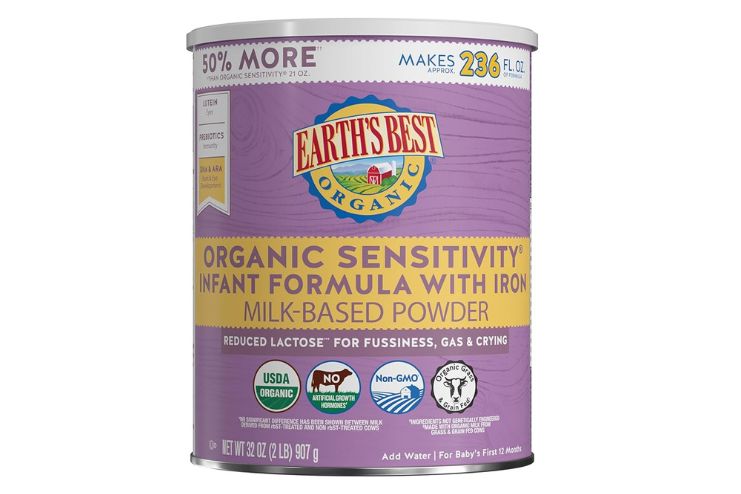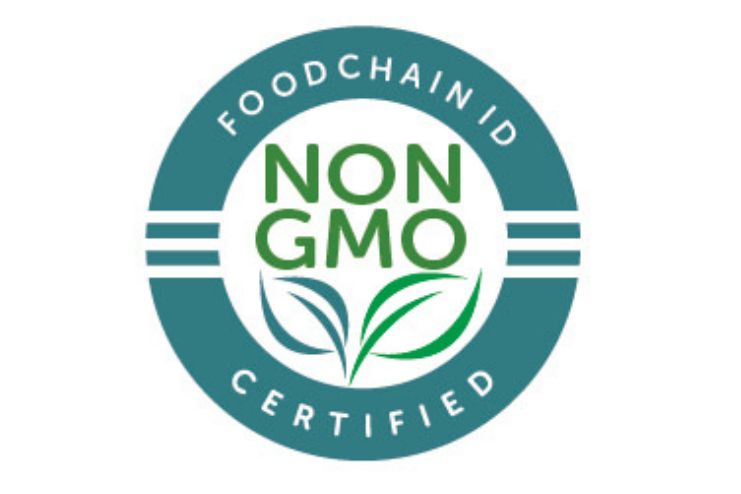Affiliate Disclaimer
Some links in this article are affiliate links. We may earn a small commission if you make a purchase through these links, at no extra cost to you. We only recommend products we find useful to our readersAs parents worry over the safety and quality of infant nutrition, healthy organic baby formulas have recently become trendy alternatives to conventional options. Concerns about synthetic additives, pesticide residues, and genetically engineered ingredients in regular formulas influence consumer choices.
Unlike regular formula, organic baby formula provides a cleaner source of nutrition for infants. It is made to conform with breast milk as closely as possible, with lactose as the main source of carbohydrates and added prebiotics to maintain the baby’s gut microbiome.
But is organic formula truly a better choice for your baby’s health? This article focuses on the benefits of organic baby formula vs. conventional options and other essential factors while choosing the best organic baby formula for your little one.
Also, Read: Nutrition Essentials During Pregnancy: Building a Healthy Diet for You and Your Baby
What Is Organic Baby Formula?

Formulated for newborns, it is by far the closest thing to natural breast milk with strict observance of the organic standards. These formulas are free from synthetic substances, pesticides, herbicides, genetically modified organisms (GMOs), and artificial additives.
In the United States, organic baby formulas must satisfy specific requirements as set forth by the USDA, the Agricultural Marketing Service, and the National Organic Program (R).
These aspects ensure that every stage of production is carefully monitored, from sourcing ingredients like vitamins, cow’s milk, and sugars to maintaining the cleanliness of machinery and handlers—all in compliance with organic standards.
Key Ingredients
Typically, organic baby formulas contain:
- Organic Milk: Cows are fed organic, non-GMO feed and raised on well-maintained land with care. As a result, organic milk is a pure and natural product.
- Lactose: Milk has natural sugars found in many organic formulas for energy.
- Organic Whey Protein: This protein is used to balance and increase digestibility, very similar to that found in breast milk.
- Healthy Fats: These are essential fatty acids derived from vegetable or fish oils for infant development.
With organic baby formula, observance and care are taken to ensure that infants receive high-quality nutrients free from chemical pollutants and additives beneficial for proper growth and development.
Why Parents Are Choosing Organic Formula

As discussed above, concerns about synthetic additives, pesticides, and GMOs in regular formulas are making parents consider organic baby formula.
Reasons to Choose an Organic Formula
Relatively Free from Harmful Chemicals and Pesticides: Organic formula means infant formula made from organic ingredients, those grown without inorganic or synthetic pesticides, herbicides, and chemical fertilizers. Thus, pesticide-free veggies in them reduce the exposure of babies to toxins.
Certified Organics Are of Utmost Importance: Organic baby formulas meet rigorous certification standards that affirm that the formula is non-GMO and that the cows or goats producing the milk were not given antibiotics or growth hormones.
Less Artificial Additives: Artificial sweeteners, artificial flavoring, and artificial preservatives are hardly ever used in organic formulas. Natural ingredients are given to babies for nutrition.
Very Good Quality Ingredients for Best Nutrition: Organic formulas are designed to give the utmost similarity to breast milk, which contains nutrients like DHA and ARA (omega-3 and omega-6 fatty acids), probiotics, and prebiotics together with vitamins and minerals for healthy growth.
Ethical and Environmental Rationale: Choosing organic baby formula supports sustainable agriculture, promotes animal welfare, and contributes to environmental sustainability.
Buy Earth’s Best Organic Sensitivity Infant Formula
Potential Downsides of Organic Baby Formula

Organic baby food formula not only reduces interaction with synthetic chemicals and pesticides but also gives parents additional factors to consider in their decision-making.
Upsurge in Cost: Organic formulas undeniably command a higher price as compared to conventional ones and thus can put a strain on the family budget.
Limited Availability: The organic formulas are not stocked by all retailers, making them tougher to get, especially in some regions.
Nutritional Dissonance: Some studies found that organic milk has lower concentrations of trace elements like copper, zinc, iodine, and selenium than conventional milk, possibly upsetting the nutritional value of the formula (R).
Digestive Problems: Occasionally, certain organic formulas contain carrageenan, which some animal studies have linked to intestinal problems and inflammation (R). Other parents maintain that some organic formulas are harder for babies to digest and may cause constipation.
Contamination Risks: Many recent studies have found potentially high levels of contaminants, including lead, arsenic, and other harmful materials, in some baby formulas, even in organic baby formulas (R).
Parents should weigh these factors in addition to the benefits mentioned above when selecting the best formula fit for their baby.
Also, Read: Top 9 Baby Products Every New Parent Needs: Essentials for Baby Care
How to Choose the Best Organic Formula for Your Baby

Choosing the best organic baby formula for your little one requires taking into consideration some aspects that will guarantee the best possible nutritional value for your baby. Here are some key factors to consider:
Certification and Ingredient Quality
Organic Certification: Ensure that the formula is certified organic by reputable organizations that adhere to strict agricultural and processing standards.
Non-GMO Verification: Non-GMO labels state that ingredients must not include genetically modified organisms.
Ingredient Transparency: Choose baby formulas with a clear ingredient list free from artificial additives, synthetic nutrients, and unclear preservatives.
Carbohydrate Source
Lactose-Based Formulas: Opt for formulas that use lactose as the chief carbohydrate source to mimic the natural sugar found in breast milk.
Do not offer Corn Syrup: Avoid corn syrup-containing formulas or glucose syrups because these carbohydrates are inferior in composition.
Fat Composition
Healthy Fats: Infant development can be aided by formulas that opt for healthy fat sources such as coconut oil or avocado oil.
Palm Oil Factors: These formulas may cause a problem in fat and calcium absorption in some infants.
Protein Source and Ratio
Whey-to-Casein Ratio: Find formulas replicating the protein profile found in human breast milk with about 60:40 whey-to-casein protein ratio for better digestion.
A2 Milk Proteins: A2 beta-casein proteins in some formulas are easier for an infant’s digestive tract.
Additional Nutrients
DHA and ARA: These nutrients ensure that the formula provides the essential fatty acids important for brain and eye development.
Prebiotics and Probiotics: A formula with these two nutrients will be helpful for a normal gut microbiome and digestion.
Iron Content: Check the iron content in the formula to ensure that it has sufficient iron for deficiency prevention, as inadequate iron can lead to health issues.
Brand Reputation and Manufacturing Practices
Company Transparency: Investigate the methods used by the manufacturer to know their sources and method of production to guarantee ethical practices and high-quality standards.
Past Recalls/Safety Record: Look for any recalls associated with the brand or safety issues.
Cost and Accessibility
Affordable: Before purchasing a formula, ensure that it fits within your budget; a high price doesn’t always guarantee better quality.
Availability: Be sure that the formula is easily available in your area for consistent feedings.
Consulting a pediatrician before choosing a formula is advisable, as they can provide personalized recommendations based on your baby’s specific needs, including any allergies or sensitivities.
By carefully considering these factors, you can confidently choose a high-quality baby formula.
Also, Read: Sucking The Baby’s Pacifier By A Parent May Prevent Allergies, New Study Suggests
Conclusion
Until recently, people weren’t aware of the difference between “organic” and “organic infant milk formula”. A few definitions have emerged recently, whereby organic most clearly means free of artificial additives and preservatives, GMOs, synthetic fertilizers, or pesticides.
Organic infant formula is designed to closely mimic the composition of breast milk. It promotes digestion and a healthy state of well-being. Most organic formulas also focus on giving the highest-quality ingredients, including lactose as the main carbohydrate, good fats, and essential nutrients like DHA and ARA for brain development.
Organic formulas, however, have their drawbacks—prices tend to be higher than alternatives, products may not be available in certain areas, and not all products share the same ingredients.
While organic formulas may be a safer and more digestible option for some babies, the best choice ultimately depends on your baby’s unique needs, preferences, and any food intolerances.
Parents should check all the brand options available in the market and verify whether or not the formula is certified organic. Consult a pediatrician before purchasing to ensure proper nutritional support. The choice between organic and non-organic formula should not overshadow the priority of providing quality, well-balanced nutrition that supports newborn growth.
References
- https://en.wikipedia.org/wiki/Organic_infant_formula
- https://organiclifestart.com/blogs/guides/ultimate-2022-guide-to-organic-baby-formula
- https://www.hollehippos.eu/blogs/organic-baby-formula-insights-benefits/decoding-organic-certifications-for-european-baby-formula-a-parent-s-guide
- https://www.nsf.org/knowledge-library/organic-ingredients-baby-health-beauty-products
- https://childrensprimarycare.com/organic-baby-formula/
- https://granola-baby.com/blogs/granola-baby-guides/a-guide-to-organic-baby-formula
- https://www.myorganicformula.com/blogs/organic-baby-formula/organic-baby-formula-ingredients
- https://www.hollehippos.eu/blogs/organic-baby-formula-insights-benefits/decoding-organic-certifications-for-european-baby-formula-a-parent-s-guide
- https://elsenutrition.com/a/resources/nutrition/why-choose-an-organic-baby-formula
- https://www.hollehippos.eu/blogs/organic-baby-formula-insights-benefits/what-makes-organic-baby-formula-different-a-parent-s-guide
- https://www.hollehippos.eu/blogs/organic-baby-formula-insights-benefits/what-makes-organic-baby-formula-different-a-parent-s-guide
- https://web-ih-sc-prd-hdl-wus2.azurewebsites.net/blogs/is-organic-baby-food-healthier-for-babies
- https://pmc.ncbi.nlm.nih.gov/articles/PMC11000068/
- https://blog.mommylabornurse.com/organic-vs-non-organic-formula
- https://babyfoode.com/blog/the-best-organic-formula-for-your-baby/
- https://www.parents.com/baby-formula-heavy-metals-report-11699267
- https://www.thebump.com/news/baby-formula-contaminants-study
- https://organicformulashop.com/blogs/news/2024-buyers-guide-best-european-organic-baby-formula
- https://www.theaurialife.com/post/an-easy-guide-to-choosing-the-best-organic-baby-formula
In this Article

















